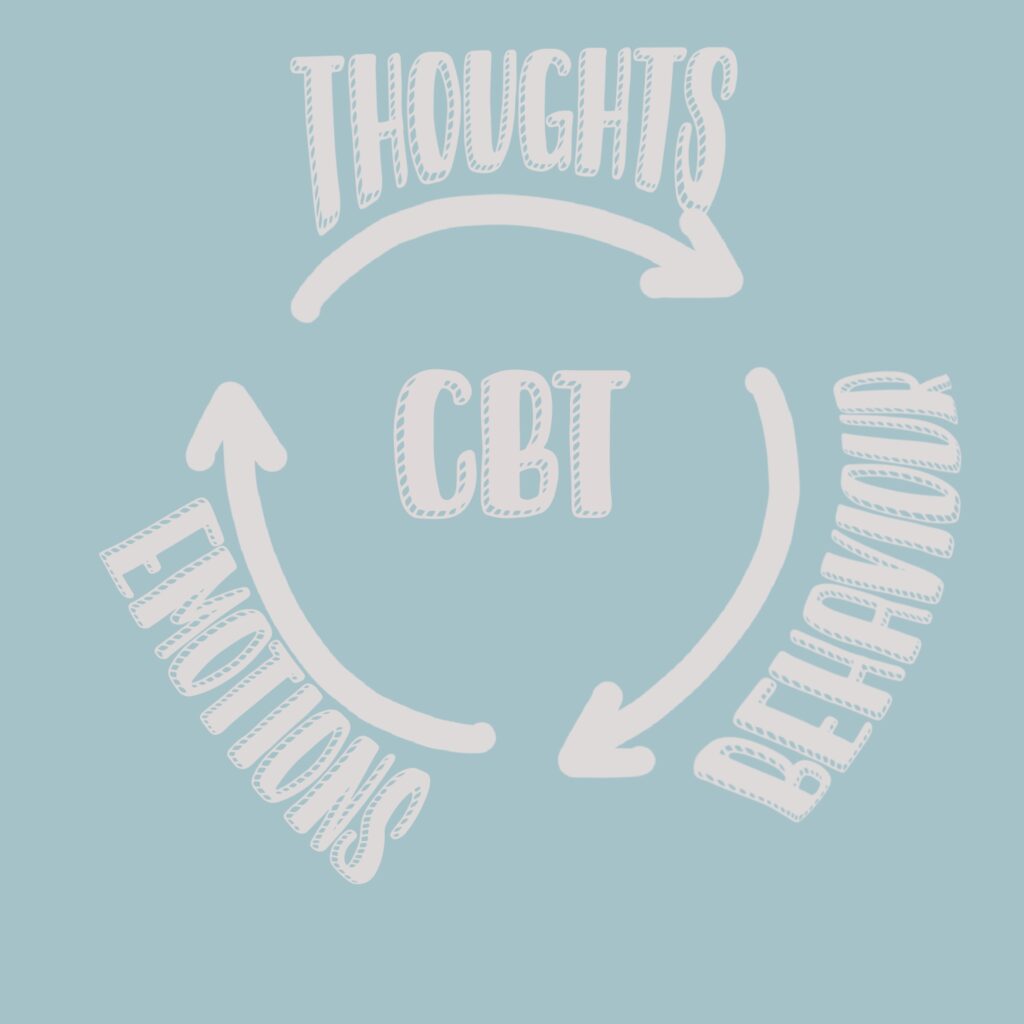CBT otherwise known as “cognitive behavioural therapy” is a talking psychological treatment that has been found to be effective in helping a wide range of mental health issues and problems. Cognitive behavioural therapy is the name for the general therapy; however, you can be offered an adaption for CBT treatment. For example, you can be offered “trauma focused CBT” if you have any signs of trauma.
What can CBT help?
- Anger problems
- Anxiety and panic attacks
- Depression
- Drug and alcohol problems
- Bipolar disorder
- Hording
- OCD (obsessive compulsive disorder)
- PTSD (post-traumatic stress disorder)
- Self-harm
- Seeping problems
- Stress
- Schizophrenia
- Psychosis

The theory
CBT believes how we think about situations can affect the way we behave and show the way we feel. For example, if you think about something negatively, you are most likely to react in a negative way. These negative thoughts have the potential to make you act out of character. Cognitive behavioural therapy combines two types of therapy to help you overcome any thoughts or problems you may be dealing with. Cognitive therapy examines the way you think. Whereas behavioural therapy examines the way you act.
Cognitive behavioural therapy can be delivered in different forms such as.
- One on one sessions
- In groups
- Self-help books
- Online
- Cd
How it works
This particular type of therapy can be difficult. CBT is a therapy where you need to work with your therapist to help overcome your problems. Therapists can give you all the help they can, but you will need to put in the work and take on board what they are saying in your sessions. The actual results from CBT will be seen once you start applying the knowledge you are given at your therapy sessions and really applying them to outside world tasks.
During the CBT sessions your therapist might focus on what is happening in your life right now. They may also talk about your past so they can see where these problems have come from. Taking to people about feelings or the past can be hard. Just know therapists are trained professionals who are there to listen. If you think a particular therapist is not working for you, there is nothing wrong with asking to change. CBT is usually a short-term treatment where you are given set sessions. The number of sessions you have may vary for varied reasons such as the reason your taking part in the therapy or your local area and therapy service.
The treatment does not stop when you leave the therapy room. Your therapist can give you activities to work on outside the sessions, a bit like homework. It will be up to you to do these activities to help yourself. It is quite common even after you have finished al your sessions you may still have activities to do to help your recovery.
How to get CBT
As CBT is getting more common there are many places you can enquire. The NHS being the main one. Charities can also help you find a CBT therapist. Asking around in your place of work or education as they should have a support system. Lastly, you can go private if you have the money to pay for it, this will be the quicker option.